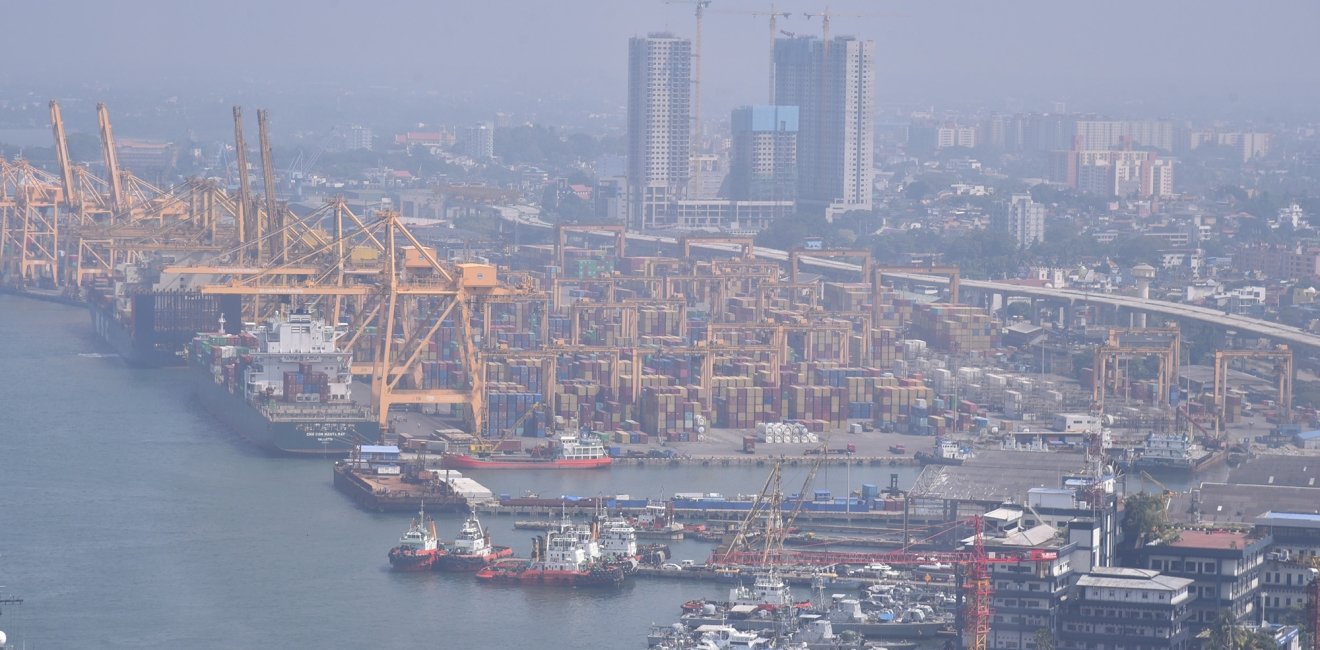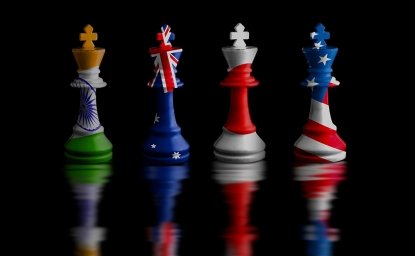
A blog of the Indo-Pacific Program
Introduction
The election of Anura Kumara Dissanayake as Sri Lanka’s president represents a pivotal moment in the nation’s struggle to redefine its economic and political landscape. While rooted in Marxist tradition, Dissanayake’s approach is more accurately described as 'socialist-populist,' combining state-led welfare with selective global market engagement. His focus is on equitable growth, balancing socialist ideals with pragmatic adjustments to international financial constraints Yet, Sri Lanka's entrenched dependency on international financial institutions (IFIs) like the International Monetary Fund (IMF), coupled with systemic governance failures, presents formidable challenges.
Internal Development Challenges: Structural Weaknesses Rooted in Economic Mismanagement
Sri Lanka’s economic instability has been deeply intertwined with historical policy missteps that have fostered a culture of dependency on foreign aid and loans. Since gaining independence in 1948, Sri Lanka adopted a state-led economic model that focused on public welfare, subsidies, and employment, relying heavily on protectionist measures designed to insulate domestic industries. For instance, the government-imposed import substitution policies in the 1960s, with prohibitive tariffs on foreign goods to encourage local production. Nationalization of sectors like tea, rubber, and banking aimed to secure economic sovereignty, yet the lack of competition and innovation fostered inefficiency. By the 1980s, these protectionist measures had backfired, resulting in a bloated public sector, stagnant industries, and worsening fiscal imbalances. This mismanagement entrenched the nation’s reliance on foreign debt—a dependency that continues to shape its economic landscape today, complicating Dissanayake’s plans for reform.
The Rajapaksa era (2005-2015) was a turning point that exacerbated these structural flaws. Gotabaya Rajapaksa’s policies were characterized by populist for economically damaging decisions. The sudden 2021 ban on chemical fertilizers, aimed at promoting organic farming, backfired disastrously reducing rice and tea yields and forcing costly imports, which worsened the trade deficit. Compounding this crisis was Rajapaksa’s decision to use foreign reserves for debt repayment, which depleted funds for essential imports and sparked public outrage. Moreover, high-profile infrastructure projects, like the Hambantota Port and Mattala Rajapaksa International Airport, were financed predominantly through Chinese loans. Though presented as strategic investments, these ventures failed to deliver the anticipated economic benefits and instead contributed to an unsustainable debt burden. Despite accusations of China's "debt-trap diplomacy”, it’s evident that Sri Lanka's internal economic mismanagement and over-reliance on foreign capital are at the core of its financial woes.
For Dissanayake, addressing these internal development challenges is not merely a political necessity but a prerequisite for economic sovereignty. Without significant policy shifts aimed at diversifying the economy and reducing debt dependency, Sri Lanka’s ambitions for sustainable growth will remain unfulfilled. The focus on self-reliance must involve targeted investments in technology, agriculture, and renewable energy sectors, which can stabilize the economy and reduce vulnerabilities to external shocks.
Governance and Corruption: Barriers to Institutional Reforms
One of the most formidable challenges to Dissanayake’s reform agenda is Sri Lanka’s deeply entrenched corruption and governance inefficiencies. The Rajapaksa administration epitomized a governance crisis marked by rampant cronyism, nepotism, and patronage networks, which diverted critical resources away from development projects and eroded public trust. Dissanayake has deliberately cast himself as the anti-corruption candidate, placing this cause at the very center of his political strategy. He views anti-corruption not just as a policy choice but as an urgent ethical imperative crucial for both governance reform and economic autonomy.
To reinforce his stance, Dissanayake has proposed the creation of an 'Independent Anti-Corruption Commission', emphasizing its need for autonomy to operate beyond political influence. This institution is envisioned as the linchpin of his strategy to dismantle the patronage networks that have long undermined Sri Lankan governance. By focusing so heavily on anti-corruption, Dissanayake is aiming to break with the past and cultivate a political culture that prioritizes accountability over patronage.
The establishment of such a commission is more than a symbolic gesture—it is essential for restoring public trust and creating a transparent business climate that attracts credible foreign investment. Dissanayake’s anti-corruption drive also carries significant economic implications: he argues that reducing corruption is pivotal to decreasing Sri Lanka's reliance on international financial institutions and fostering sustainable development. However, this agenda pits Dissanayake directly against entrenched political elites, who have vested interests in maintaining the status quo.
Geopolitical Implications
Sri Lanka’s financial dependency, rooted in domestic mismanagement, has made it vulnerable to geopolitical maneuvering. This vulnerability is exacerbated by its strategic location in the Indian Ocean, turning it into a battleground for influence among major powers like China, the U.S., and India. For Dissanayake, reducing this dependency is not just a financial priority but also a critical step toward regaining geopolitical autonomy.
India has emerged as Sri Lanka’s largest crisis aid provider, extending over $4 billion in credit and emergency assistance in 2022 alone—surpassing China’s contributions. This aid was not merely altruistic; it was aimed at countering China’s expanding influence, demonstrating India’s strategic interest in Sri Lanka's stability. For Dissanayake, this presents a complex diplomatic challenge. While he needs India’s support, he must also ensure that Sri Lanka does not become overly reliant on New Delhi. Balancing ties with both India and China are essential, as Dissanayake seeks to leverage their rivalry to secure better economic terms while maintaining Sri Lanka’s sovereignty.
On the other hand, and Road Initiative (BRI) in Sri Lanka underscores Beijing's ambitions, using infrastructure investments to secure both economic footholds and political leverage. The controversial Hambantota Port lease to China remains a stark reminder of how financial dependency can lead to the erosion of national control. Dissanayake faces a critical task: recalibrating Sri Lanka’s relationship with China, retaining economic benefits without surrendering strategic assets.
The United States has an opportunity to provide Sri Lanka with a sustainable investment framework that emphasizes transparency and governance reforms, aiming to complement rather than compete with existing economic partnerships. By supporting sectors such as technology, renewable energy, and innovation, the United States can help Sri Lanka build a diversified and resilient economy that can better withstand global economic fluctuations. This collaborative approach not only aligns with US and Sri Lankan interests but also empowers Sri Lanka to pursue its development goals with greater autonomy and balanced international relations.
Internal Instabilities Fuel External Influence
As Dissanayake seeks to renegotiate these terms, the IMF’s austerity demands clash with his socialist agenda of increased state welfare and economic equity. The IMF's $2.9 billion bailout package, secured by the previous administration, mandates strict adherence to fiscal discipline, curbing of public sector expansion, and prioritization of debt repayment—all measures that stand in stark opposition to Dissanayake's vision of a state-led economy that prioritizes social welfare. This clash is not merely ideological but also structural. Sri Lanka’s over-reliance on imports for essentials like food, fuel, and medicine leaves it vulnerable to external shocks and global supply chain disruptions. The country’s limited foreign exchange reserves make self-sufficiency an unrealistic goal without significant structural changes to its economic foundation. Even if Dissanayake attempts to renegotiate IMF terms to alleviate the burden on lower-income groups, he risks losing crucial financial lifelines that are essential for stabilizing the economy in the short term.
Adding to this dilemma is Sri Lanka’s checkered history with structural adjustment programs. The IMF's stringent conditions have repeatedly led to public discontent due to their impact on social services and public sector employment. Dissanayake must not only navigate these historical grievances but also present a compelling economic narrative that aligns with his socialist values while being palatable to both international creditors and domestic stakeholders.
Projected Trends: Ideology Meets Pragmatic Realities
To counteract these internal and external pressures, Dissanayake’s government must adopt a hybrid strategy that balances ideological aspirations with pragmatic governance. A key focus should be on diversifying Sri Lanka’s economy to reduce its reliance on imports and create sustainable domestic industries. Investment in renewable energy, technology, and innovation will be essential in building a resilient economic foundation that can withstand global market fluctuations and geopolitical shocks.
Moreover, Dissanayake needs to pursue a balanced foreign policy that leverages Sri Lanka’s strategic location to attract diversified investments without becoming overly dependent on any single actor. By promoting transparent and sustainable development projects, Sri Lanka can position itself as a credible partner to both Western democracies and Asian powers, reducing its vulnerability to coercive economic practices.
Given Dissanayake’s ideological stance and the current trends, it is likely that his administration will initially attempt to renegotiate the terms of engagement with both China and Western financial institutions. However, the need for immediate economic stability may push him towards pragmatic compromises, potentially softening his socialist rhetoric to secure international financial support.
In the broader geopolitical context, a more balanced and diversified approach could see Sri Lanka emerging as a key player in the Indo-Pacific, leveraging its strategic importance to extract favorable terms from competing powers. If successful, Dissanayake’s strategy could enhance Sri Lanka’s geopolitical autonomy, allowing it to engage with China, India and the United States on its own terms, thereby shifting from a position of vulnerability to one of strategic leverage.
The views expressed are the author's alone, and do not represent the views of the U.S. Government or the Wilson Center. Copyright 2024, Indo-Pacific Program. All rights reserved.
Follow the Indo-Pacific Program on Twitter @IndoPacific. or join us on Facebook.
Author

Indo-Pacific Program
The Indo-Pacific Program promotes policy debate and intellectual discussions on US interests in the Asia-Pacific as well as political, economic, security, and social issues relating to the world’s most populous and economically dynamic region. Read more





